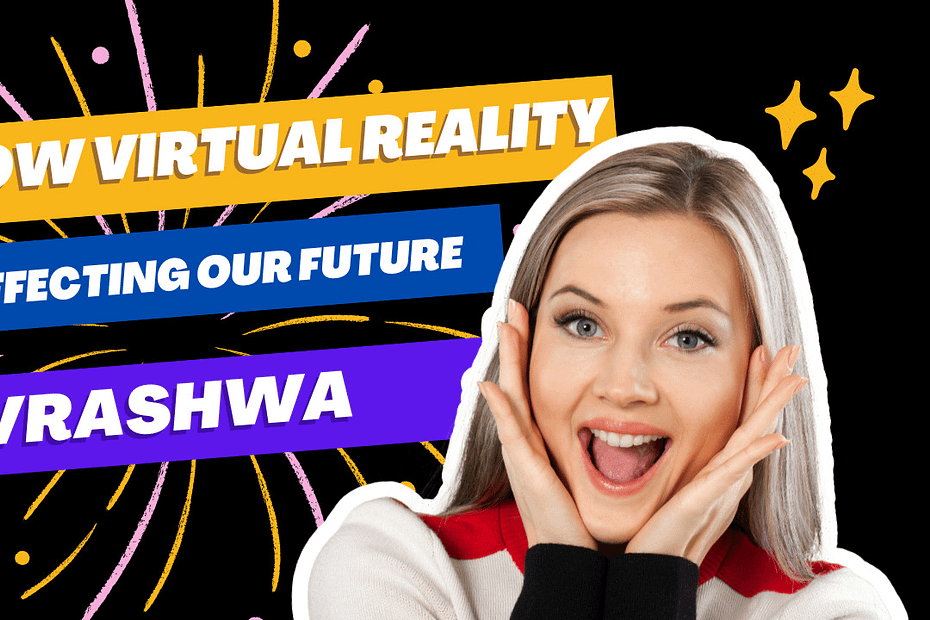Virtual Reality (VR) has emerged as a groundbreaking technology with the potential to revolutionize various aspects of our lives. From education and training to entertainment and social interactions, VR offers many possibilities. In this blog post, we will explore the history and current state of the development of VR, discuss its potential benefits and drawbacks, and speculate on its future impact on society.
Potential Benefits of VR:
VR holds immense promise in several areas, including education, engagement, opportunities for students, safety, cost reduction, and effectiveness. Firstly, VR can improve learning outcomes by providing students with immersive and engaging experiences, enhancing retention and understanding of complex concepts. Additionally, VR increases engagement through its interactive and realistic nature, capturing users’ attention and fostering active participation. Moreover, VR opens up new opportunities for students to learn in innovative ways, offering hands-on experiences that were previously inaccessible. Furthermore, VR enhances safety by enabling users to practice dangerous or risky tasks in a controlled virtual environment, reducing real-world risks. It also reduces costs by providing efficient and cost-effective training and education methods. Lastly, VR increases effectiveness by tailoring learning experiences to individual needs, enabling personalized learning and skill development.
What Are They Potential Drawbacks of VR:
While VR presents significant benefits, it is crucial to consider potential drawbacks. These include addiction, isolation, cyberbullying, misinformation, and exploitation. The highly immersive and stimulating nature of VR experiences can lead to addiction, with users becoming overly reliant on virtual environments. Additionally, excessive time in VR may result in social isolation as users prioritize virtual interactions over real-world relationships. Furthermore, VR could be used as a tool for cyberbullying, allowing users to create avatars that resemble others and harass or bully them within virtual spaces. Misinformation is another concern, as VR experiences can be manipulated to spread false or inaccurate information. Lastly, VR could be exploited to manipulate or deceive users, raising ethical concerns about its use.
What is the Current State of Development of VR:
Although VR is still in its early stages, significant progress has been made, and its accessibility has improved. The commercial release of VR headsets in 2016 marked a turning point, leading to substantial growth in the VR market. Factors such as the increasing affordability of VR headsets, the rising popularity of VR games and experiences, and the expanding utilization of VR for training and education have propelled its development. As a result, VR is becoming more accessible to a broader audience and finding applications in various industries.
What Is The Potential Future of VR:
Looking ahead, VR has the potential to reshape learning, training, work, play, and social interactions. In education, VR can create immersive and engaging learning environments that cater to diverse learning styles. In training, VR simulations can provide realistic and interactive experiences for professionals across different fields. Work dynamics can be transformed through remote collaboration and virtual meetings. VR can also introduce novel forms of entertainment, such as immersive games, virtual movies, and interactive concerts. Additionally, VR can revolutionize social interactions by connecting people innovatively, allowing them to attend virtual events, play games with friends from different parts of the world, or simply socialize in virtual environments.
Conclusion:
Virtual Reality (VR) can revolutionise how we learn, work, and interact with each other. Its immersive and engaging nature offers numerous benefits, including improved learning outcomes, increased engagement, new student opportunities, enhanced safety, reduced costs, and personalized learning experiences. However, it is essential to be mindful of potential drawbacks, such as addiction, isolation, cyberbullying, misinformation, and exploitation.
As VR develops and becomes more accessible, individuals, educators, and policymakers must understand its potential impact on society. By exploring the possibilities and challenges associated with VR, we can harness its benefits while mitigating potential risks.
If you’re intrigued by the potential of VR, I encourage you to delve deeper into the subject. Stay informed about the latest advancements, explore VR experiences, and discuss their ethical implications. With proper understanding and responsible utilization, we can shape the future of VR in a way that positively impacts society and enhances our lives.
Virtual Reality is a technology that immerses users in a computer-generated environment, providing a realistic and interactive experience.
VR has the potential to improve learning outcomes, increase engagement, provide new opportunities for students, enhance safety, reduce costs, and offer personalized learning experiences.
Some drawbacks of VR include the risk of addiction, social isolation, the potential for cyberbullying, the spread of misinformation, and the potential for exploitation and manipulation.
VR is rapidly growing and becoming more affordable. Commercial VR headsets were first released in 2016, and since then, the market has expanded due to improved accessibility and increasing utilization in various industries.
VR has the potential to revolutionize education, training, work, play, and social interactions. It could transform learning experiences, create realistic training simulations, enable remote collaboration, introduce new forms of entertainment, and connect people innovatively.
It is essential to balance the benefits and drawbacks of VR. Education, awareness, and ethical considerations should guide its use to maximize positive impacts while minimizing potential risks.
To learn more about VR, you can explore online resources, attend VR conferences or workshops, and engage in discussions with experts and enthusiasts in the field.

